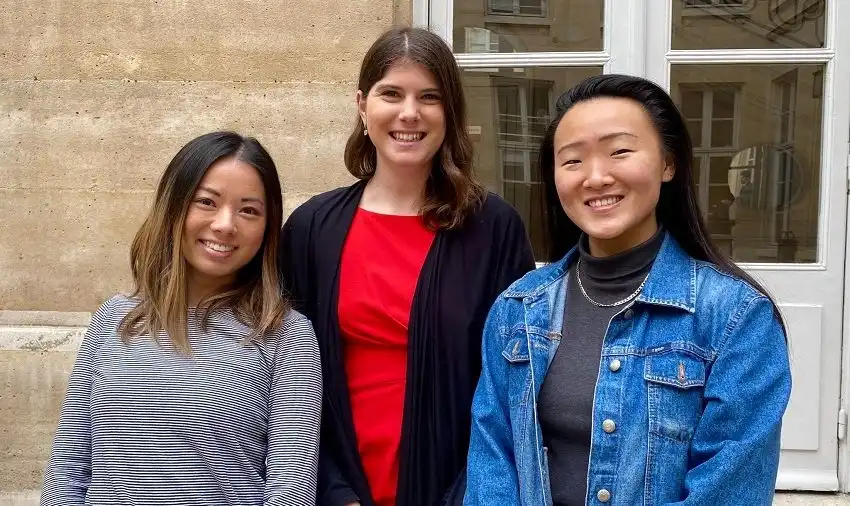Home>Congratulations to our students who participated in the 2022 GPPN Annual Conference
18.03.2022
Congratulations to our students who participated in the 2022 GPPN Annual Conference
The School of Public Affairs is part of the GPPN network that gathers together 7 prestigious universities in public policy. Each year, one of the partner universities organises an Annual Conference, which offers an opportunity for selected students to compete against teams from the other universities.
In 2022, the Annual Conference was held by the Hertie School (Berlin, Germany) from Friday 4 March to Sunday 6 March 2022. The GPPN invited students to identify an important policy challenge in any public policy field and in any regional, international or national context. Students were asked to form teams between 3 and 5 members and work together to develop their proposals.
They were looking for student presentations on public policy proposals that:
- Identified an important and pressing public policy problem;
- Presented a convincing and innovative solution and demonstrate why this proposal is appropriate to solve the policy problem identified;
- Explained how the solution shall be implemented and what implementation challenges will need to be overcome, taking into account available knowledge and the context in which the policy challenge occurs.
Five student groups represented Sciences Po. Evelyn, Chelsea, and Joyce are one of them. These students from the Social Policy & Social Innovation stream took part in the competition and share their stories with us.
What is the summary of your project?
Socio-emotional skills are the non-cognitive, soft skills needed to successfully navigate social relationships, regulate emotions, and succeed in an increasingly globalized and ever-adapting labor market. Over the past several decades, there has emerged a consensus among educators and researchers studying child health and development that developing these skills through socio-emotional learning (SEL) is crucial to long-term learning and life outcomes, especially in light of learning gaps exacerbated by the COVID-19 pandemic. Recent publications from the OECD emphasize the importance of developing socio-emotional skills, especially among disadvantaged students, as a crucial way of promoting improved education and life outcomes. Our project aims to address socio-economic opportunity gaps in schools and its effect on deteriorating mental health through the implementation of socio-emotional learning (SEL) in public French primary schools. Our solution targets students aged 6-9 in disadvantaged schools in the Paris metropolitan area by proposing a package of digital and physical resources to help educators teach socio-emotional language and vocabulary development in a restorative justice framework. Ultimately, our long-term objective is to normalize discussions of and promote mental health in schools, in service of equitable opportunities for all students.
What inspired you to work on the topic that you chose for your project? / How did your different backgrounds contribute to the team and coming up with your own policy innovation?
Evelyn and Joyce are both former classroom teachers, passionate about educational equity. Our experience teaching, particularly during the COVID-19 pandemic, illuminated and confirmed the need for improved socio-emotional learning in schools. When Chelsea suggested that we submit a project proposal for GPPN, we were instantly drawn towards an education-centered project. Our collective teaching experience informed our project, grounding our proposal with on-the-ground contextual knowledge of best practices in the classroom.
What challenges did you face and how did you overcome them?
One of our biggest challenges was boiling down our intervention - and months of research - into an engaging, 3-minute pitch. Presenting the project to colleagues and to our GPPN advisor, Jennie Cottle, helped us to ultimately create a pitch that moved us into the final round of the conference.
What advice would you give to future students interested in the GPPN and these types of opportunities?
Select a topic you truly care about and believe in. The work becomes a passion project - and much more enjoyable.
